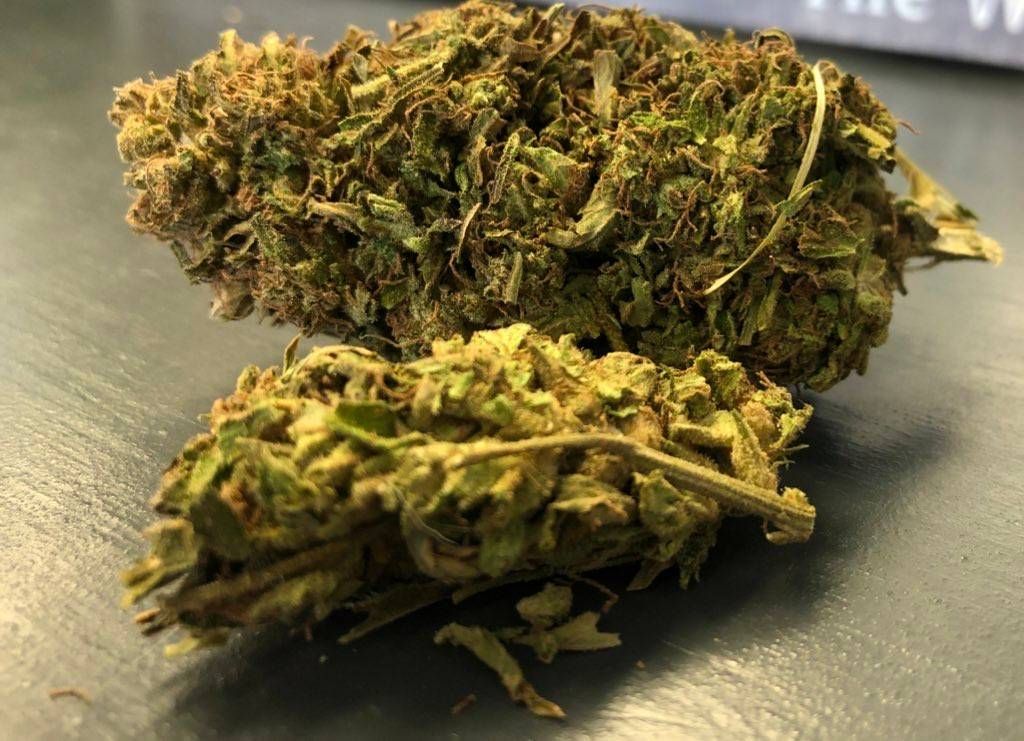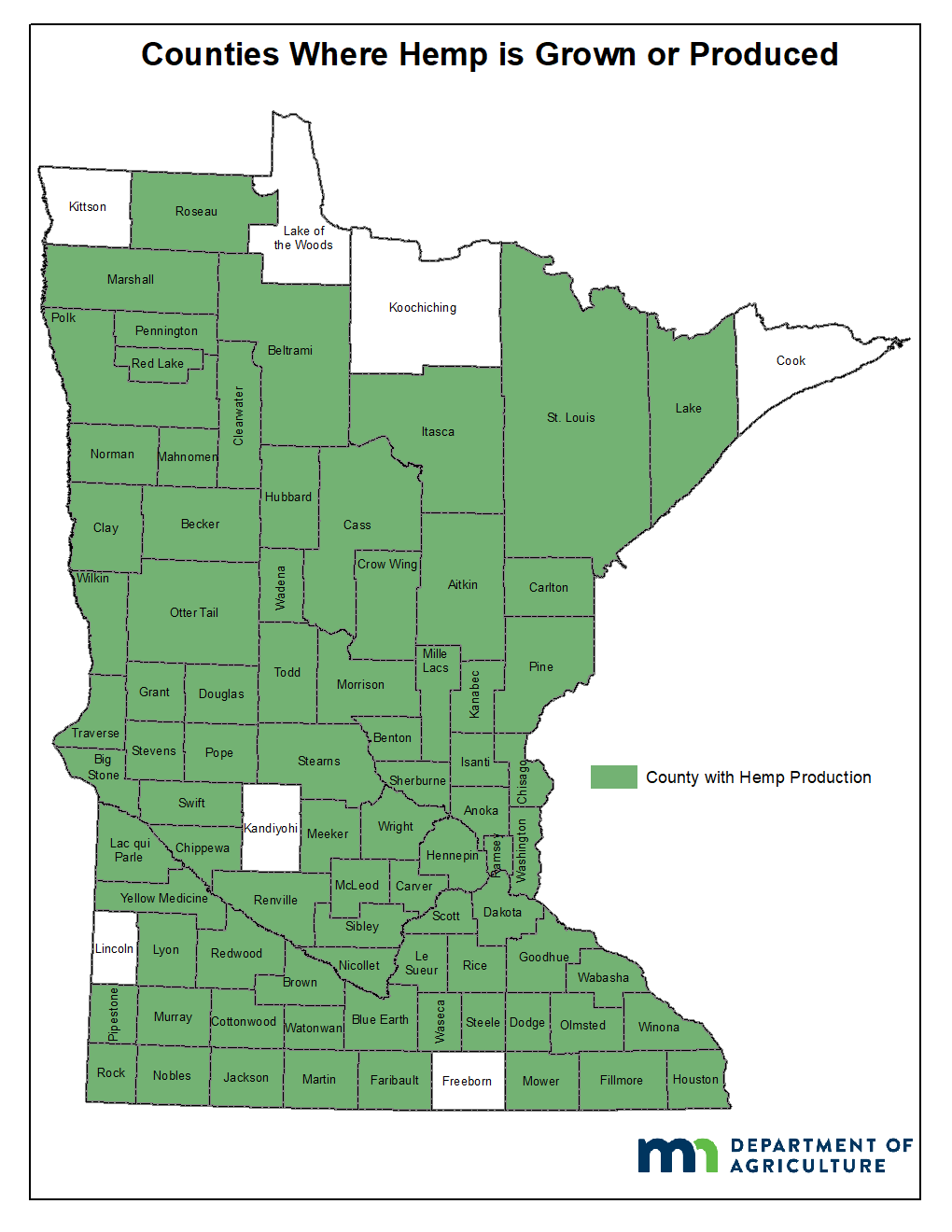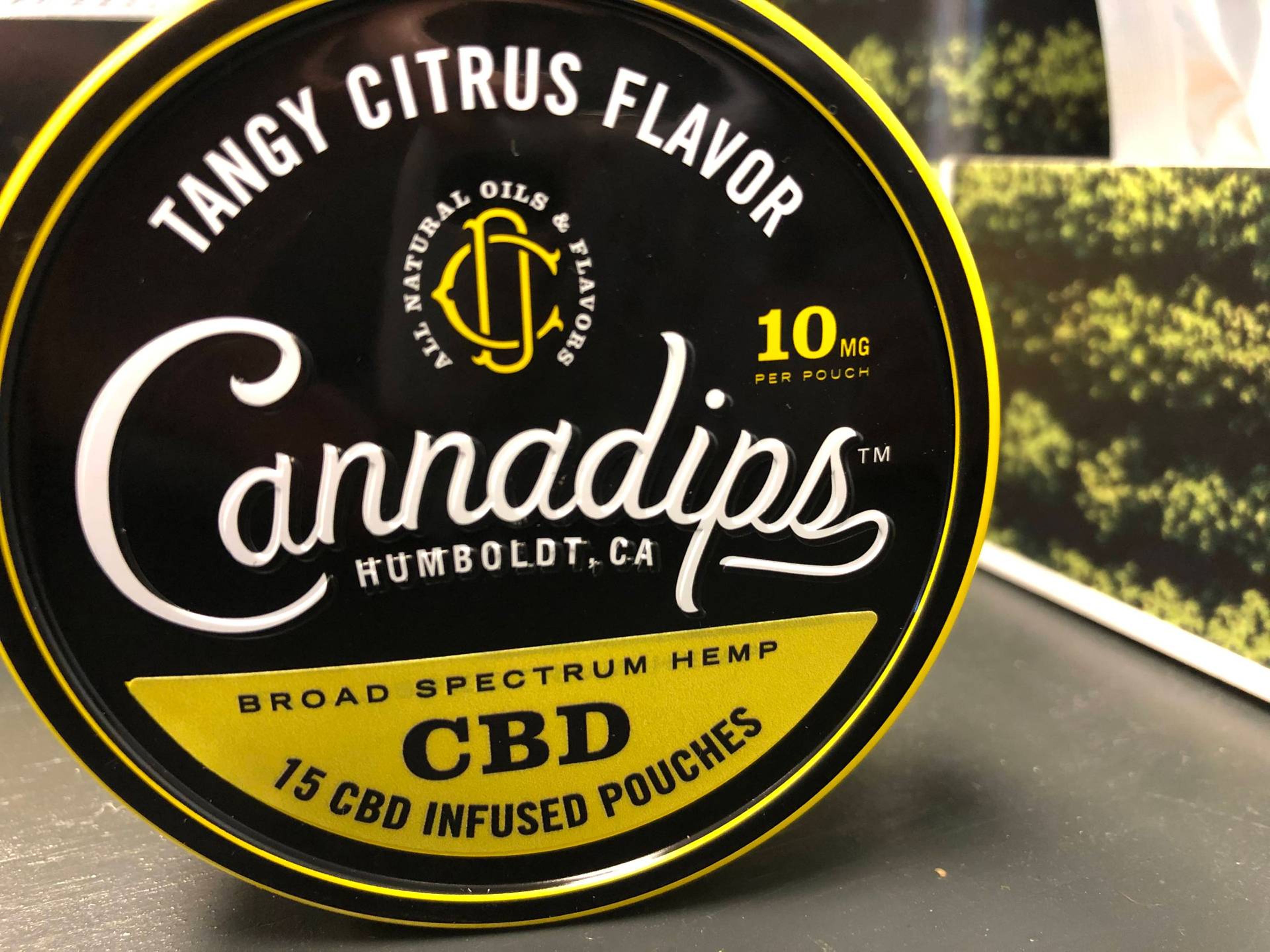What is fueling Minnesota's growing hemp industry?
It looks like marijuana. It smells like marijuana. But this is not marijuana. "It's smokable hemp flower," explains Tim Frey from Global Organic Distro. "Inhalation is the best way to get CBD into your body, you feel it instantly."
In Minnesota it is legal to smoke hemp, but not marijuana. Frey says that, for people who want the medical effects without the psychoactive ones, hemp is the best thing for them.

CBD (cannabidiol) and hemp products are everywhere, and sellers make a lot of promises about the products' effectiveness in relieving pain, anxiety, insomnia and more - but the industry is a bit like the Wild West right now, with little consistency and regulation. "There's a lot of bad players, no rules and regulations yet. We are licensed in Minnesota, North Dakota, Wisconsin. We test all stuff in and out. If it can't provide a lab report, do not trust it," Frey cautions.
This Minnesota Hemp Association conference in St. Cloud was bursting at the seams as interest quickly builds in growing, selling and manufacturing hemp. Joe Radinovich from the Minnesota Hemp Association reminds us that, "Hemp has no ability to get a person high. It does not have the same psychoactive effects as marijuana." Not only is it hard to tell the difference just looking at it, but it's also, "hard to smell the difference - I don't know if you smelled it. It is a little bit jarring," Radinovich says, noting that it's especially odd in a state that does not allow recreational or smokable medical marijuana - just pills and oils by prescription.
Many may recognize Radinovich from his run for Congress, when his charges for drug paraphernalia possession as a teen were used against him in the campaign. At the time, he said, "Everybody knows I smoked pot when I was 18, so that was embarrassing when my grandma found out." Today, he's a bit older and wiser, and has a sense of humor about it all, recalling the last time this reporter interviewed him, "Kinda' funny, Mary, we were in Duluth, and I was running for Congress, and we were talking about marijuana and today we're talking about hemp."

As a state lawmaker, Radinovich authored a bill to legalize recreational marijuana and his finance, former representative Carly Melin, sponsored the bill that did get signed to create the state's very limited medical marijuana program. "This is the Minnesota Hemp Association hemp conference, and we're really focused on the legal side of the plant, that's cannabis with less than .3% THC [tetrahydrocannabinol]. It has all sorts of industrial applications - grain, fiber, feed and also the CBD products that many people are familiar with."
Back in 2014, the federal government passed the Farm Bill for hemp pilot programs. The political odd couple of conservative state Rep. Mary Franson and liberal former representative Phillyis Kahn teamed up, and together they passed what was the authorizing language for that pilot program in the state. In 2018, the federal government expanded from a pilot program to full-scale industrial hemp, and Minnesota followed suit the following year.

The growth is staggering. Already 80 out of 87 Minnesota counties are growing hemp, and the number of growers has skyrocketed from seven in 2016 to 723 in 2019. Whitney Place from the Minnesota Department of Agriculture says, "I oversee our plant protection division, which our industrial hemp program is housed under. We've had the program for about five years, and it's been really exciting to build it up in the department."
Asked if there's any other form of agriculture growing at that rate, she replies, "Not in Minnesota. The crop has really taken off." Growing for the CBD market is a huge force. Place says that 78% of hemp growers in Minnesota are growing for CBD. The Ag Department also has to regularly communicate with law enforcement about who is licensed to grow the plants that look like marijuana.

Sales of CBD products are projected to reach $20 billion in just a few years, and one research company calculates a more than 700% product sales growth. But legislation hasn't really caught up with the market. "What we're asking legislators at the state and federal levels to be aware of is many growers, entrepreneurs out there are putting in hard work trying to be successful, and there's a lot of gray area. We're looking for some certainty," Radinovich says.
Another gray area revolves around vaping. With the state suing a manufacturer, folks here are concerned about that business. "We don't do cartridges with all the negative press. The issue is the illicit cartridges with vitamin E or the black market THC with pesticides - you're vaping pure cyanide," Frey says.
Ultimately, farmers, manufactures and sellers of hemp-related products want some certainty. It's Radinovich's job to deliver that. "In my new role, we are a bipartisan organization. I know that both my former Republican colleagues in the State Legislature and my Democratic colleagues understand the potential of this industry. They understand, no matter what their feelings on marijuana are, that this is a separate industry that is defined differently, that has different applications, and that should be allowed to grow and prosper in the state."
Stay tuned for a second installment of Mary Lahammer's story on the growth of hemp production in Minnesota, which will air on Almanac in January.
This story was published December 20, 2019.
